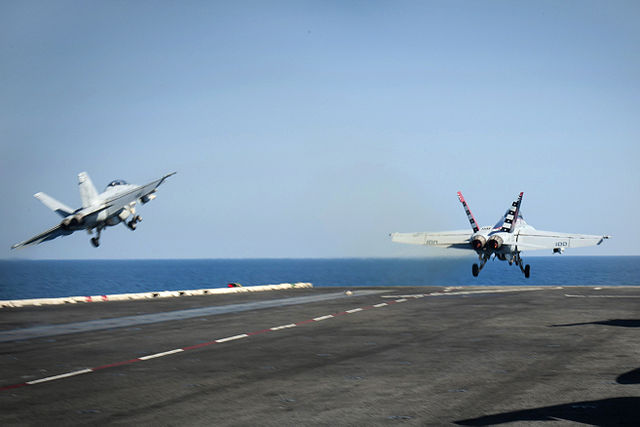A former Iraqi chemical weapons engineer from the Saddam Hussein era — later a veteran insurgent styling himself as “Abu Malik” — has been killed in a coalition airstrike near Mosul, according to the United States. He was believed to be advising ISIS personnel on handling and use of chlorine weapons (which are not, incidentally, banned under the Chemical Weapons Convention).
By most accounts, both ISIS and the Syrian Armed Forces are using makeshift chlorine weapons for dramatic effect — though not necessarily for battlefield utility, as they are difficult to use effectively in improvised explosive devices.
ISIS combatants are believed to have used chemical IEDs in Iraq (New York Times, October 23, 2014):
Unconfirmed reports of improvised bombs made with chlorine gas and used by militants have arisen from time to time since the Islamic State began seizing territory in Iraq at the beginning of the year, raising concerns that Iraq’s old chemical weapons stores had fallen into the militants’ hands.
The weapons referred to above, as summarized here, are the really old rusty ones from before the first Gulf War. However, while largely unusable as intended, some of the ingredients in them can be re-purposed into IED additives. Additionally, chlorine (which was not discussed in the major Times investigation) is not just used in weapons and is thus far more readily available as an ingredient than other chemical weapons agents.
ISIS allegedly detonated a chlorine-filled IED in September against Iraqi police officers (Washington Post, October 23, 2014):
The police officers, all members of the Sunni Jabbour tribe, which has turned against the Islamic State, were guarding a line in the town’s north. After an exchange of fire, they said, they were surprised to see Islamic State fighters retreating from their position about 150 yards away.
Suddenly there was a boom in the area the extremists had just vacated, said Lt. Khairalla al-Jabbouri, 31, one of the survivors. “It was a strange explosion. We saw a yellow smoke in the sky,” he said. The wind carried the fog toward their lines. The men say it hung close to the ground, consistent with the properties of chlorine gas, which is heavier than air.
“I felt suffocated,” Jabbouri recalled. “I was throwing up and couldn’t breathe.”
Another officer, Ammer Jassim Mohammed, 31, who suffers from asthma, said he passed out within minutes.
Other minor ISIS chemical IED attacks in Iraq have also been reported. There are also allegations that ISIS used some other type of chemical agent in Kobani.

Aircraft participating in U.S.-led coalition airstrike missions in Operation Inherent Resolve against ISIS. (Credit: Dept. of Defense via Wikimedia)


